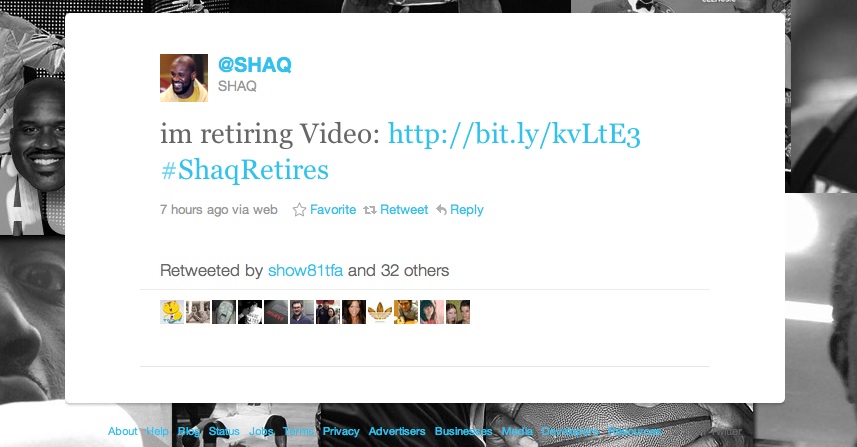Search
POLL: Would you ever announce your retirement online?
Yesterday afternoon, Shaquille O’Neal (@Shaq) put an end to an illustrious 18-year NBA career in a single tweet:
As I type this post — during the second intermission of the Stanley Cup Finals — the hashtag #ShaqRetires is still trending on Twitter.
So, the question is, would you ever use social media to announce your retirement?
 The Employer Handbook Blog
The Employer Handbook Blog



